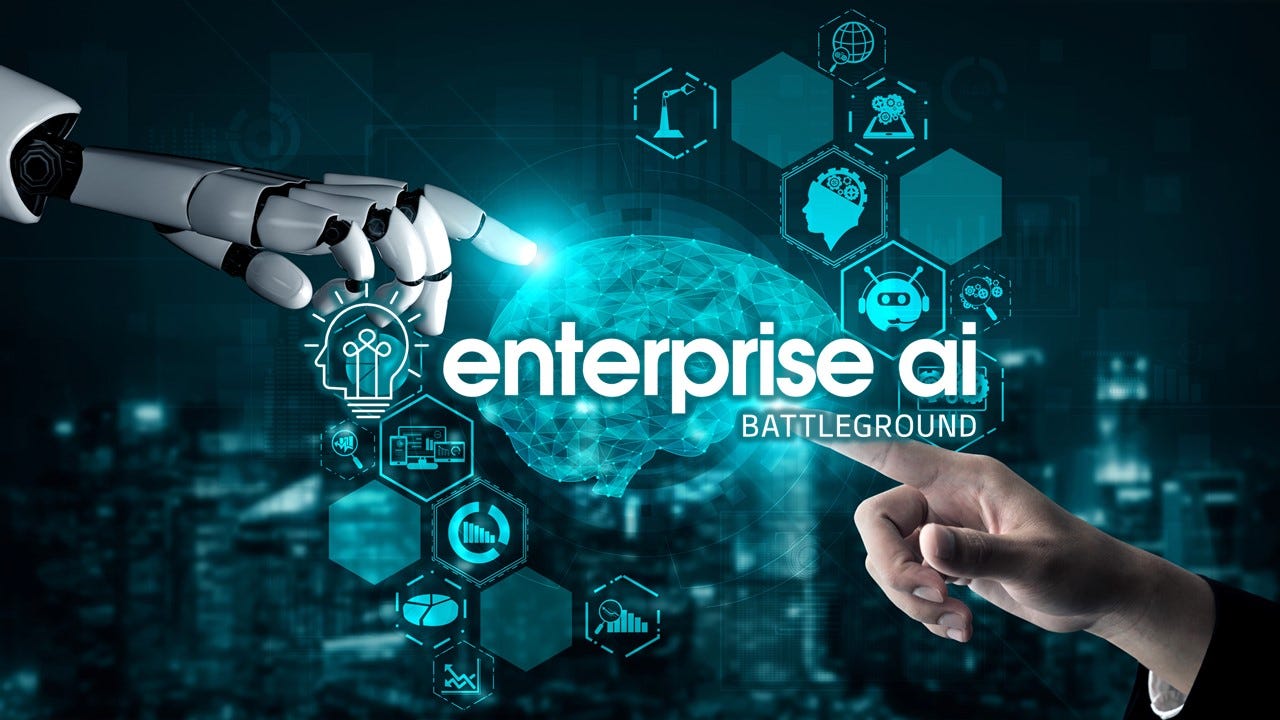Key Takeaways
- Understanding the role of Enterprise AI in streamlining business processes
- The benefits of implementing Enterprise AI solutions
- Real-world examples of successful Enterprise AI applications
- Future trends and predictions in Enterprise AI technology
Introduction to Enterprise AI
Enterprise AI refers to the integration of artificial intelligence technologies into business operations to enhance efficiency, decision-making, and innovation. Unlike consumer AI, which focuses on individual use, Enterprise AI aims to address complex, large-scale business challenges. With the exponential data growth, businesses require robust solutions to manage and utilize this data effectively—this is where AI enterprise software plays a pivotal role. Organizations increasingly adopt AI enterprise software to transform their operations and stay ahead in a competitive market.
A variety of technologies are included in enterprise artificial intelligence (AI), such as robots, computer vision, machine learning, and natural language processing (NLP). Together, these technologies enable task automation, extensive data analysis, and wise decision-making. Computer vision allows machines to analyze and extract information from visual inputs, machine learning algorithms may find patterns in data, and natural language processing (NLP) enables machines to comprehend and produce human language. Consequently, companies can increase overall productivity, cut expenses, and streamline their operations. With these qualities, enterprise AI becomes more than simply a catchphrase; rather, it becomes an essential component of contemporary corporate operations.
Benefits of Enterprise AI
Implementing Enterprise AI can bring a multitude of benefits to organizations:
- Operational Efficiency: Automating repetitive tasks allows employees to focus on more strategic roles. AI chatbots, for instance, may answer questions from customers for customer support, freeing up human workers to deal with trickier problems. This not only increases productivity but also enhances the quality of customer interactions.
- Data-Driven Decision Making: With advanced analytics, businesses can make more informed decisions. Compared to humans, AI systems can process and analyze data more quickly and thoroughly. This allows businesses to uncover insights and trends that were previously hidden within large datasets.
- Customer Personalization: AI enables businesses to tailor experiences to individual customers, improving satisfaction and loyalty. Personalized recommendations and targeted marketing campaigns are just a few examples. AI can deliver highly relevant content and offers, boosting engagement and conversion rates, by evaluating customer behavior and preferences.
- Cost Reduction: AI can lead to significant cost savings by automating processes and optimizing resource allocation. This is particularly evident in industries such as manufacturing, where predictive maintenance can prevent costly downtime. Additionally, AI can optimize supply chain operations, reducing waste and improving efficiency.
According to a report by McKinsey, companies leveraging AI have seen up to a 45% increase in productivity. This highlights the transformative potential of Enterprise AI in driving business growth. Businesses that adopt AI can gain a competitive edge by being more agile, efficient, and responsive to market demands.
Real-World Examples
Numerous companies have successfully implemented Enterprise AI to transform their operations. For instance, IBM’s Watson has been used in the healthcare sector to analyze medical records and assist in diagnosis. Watson’s capacity to handle and analyze enormous volumes of medical data facilitates faster, more accurate decision-making by physicians, which enhances patient outcomes and streamlines the delivery of healthcare.
In the retail industry, AI-driven recommendation engines ensure personalized shopping experiences for consumers, boosting sales and customer retention. Online retailers like Amazon use advanced algorithms to analyze customer preferences and offer personalized product recommendations. This not only enhances the shopping experience but also drives higher conversion rates. Retailers can increase sales and build long-term customer relationships by providing customers with relevant product suggestions.
Future Trends
As technology advances, the role of Enterprise AI is only set to grow. Future trends may include:
- Greater Adoption of Predictive Analytics: AI is used in predictive analytics to forecast consumer behavior and market trends. It can help businesses anticipate demand, optimize inventory levels, and make proactive decisions. Businesses may take advantage of new possibilities and remain ahead of industry changes by utilizing real-time analytics and historical data.
- Increased Use of Natural Language Processing (NLP): Enhancing customer service with sophisticated chatbots and virtual assistants. NLP technology can understand and respond to customer queries in real time, improving response times and satisfaction. These AI-powered helpers are capable of doing a variety of jobs, such as processing orders, handling problems, and responding to frequently asked queries.
- AI-Powered Cybersecurity: Using AI to detect and respond to cyber threats in real-time. AI algorithms can analyze network traffic and identify anomalies that indicate potential security breaches. Businesses can enhance their cybersecurity posture and protect sensitive data from attacks by automating threat detection and response.
- Expansion in IoT Applications: Integrating AI with Internet of Things (IoT) devices to optimize operations and improve decision-making processes. AI can analyze data generated by IoT devices to identify patterns, predict maintenance needs, and enhance overall efficiency. This can lead to improved asset management, energy savings, and operational excellence.
A Gartner report predicts that by 2025, 50% of enterprises will have adopted AI in one form or another to enhance their operations and stay competitive in the market. This indicates the growing recognition of AI’s value in driving business success. Businesses that adopt these trends will be well-positioned to prosper in the digital era as AI technologies continue to advance.
Conclusion
Enterprise AI is no longer a futuristic concept—it’s a present-day reality that’s reshaping industries. The potential for increased efficiency, better decision-making, and improved customer experiences makes it an invaluable tool for businesses. However, overcoming the difficulties involved in its implementation requires significant thought and planning. The use of AI in business will only grow in the future, bringing with it new breakthroughs and opportunities.
Keep an eye for more news & updates on TimesAnalysis.Com!



